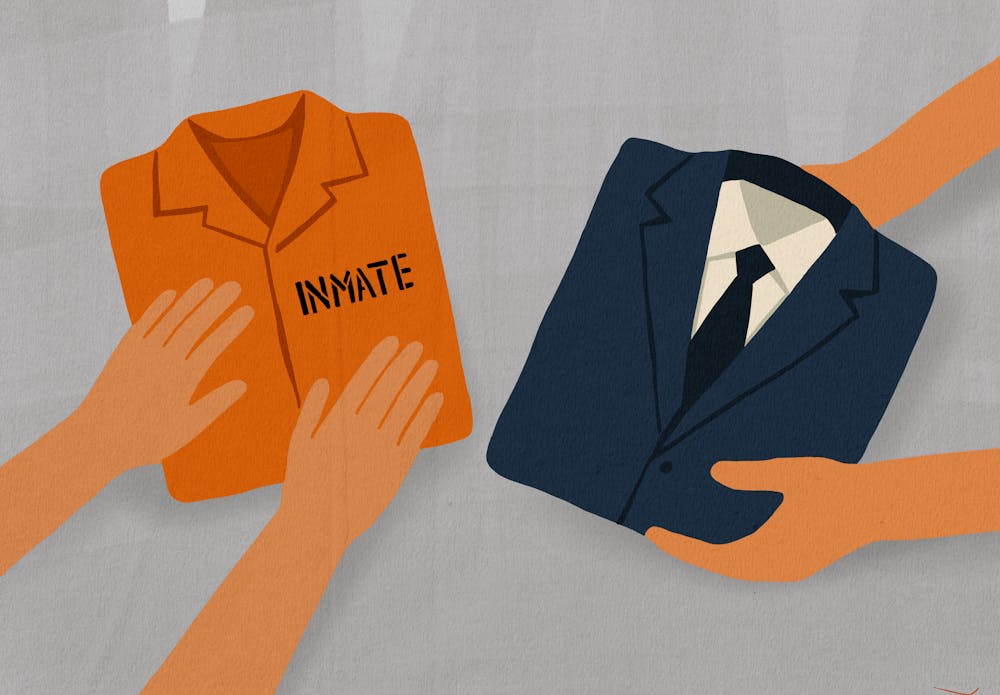The Commonwealth of Virginia has an incarceration rate higher than both the United States and any other independent, democratic nation in the world. Moreover, these formerly incarcerated individuals have an uphill battle to fight when it comes to being fully reintegrated into the State. Beginning on July 1, 2026, however, formerly incarcerated individuals with no new convictions after a certain amount of time — seven years for misdemeanors and 10 years for felonies — will be able to petition to have their records sealed. This law will go a long way to signal that formerly incarcerated Virginians are still Virginian citizens and deserve to be treated as such by their employers and communities.
The stigma attached to former convicts effectively extends a person’s punishment well beyond the end of a prison sentence or payment of a fine. Specifically, a criminal record makes it substantially more difficult for an individual to find employment. Despite efforts to ease the burden on formerly incarcerated individuals reentering society, the unemployment rate for those actively seeking employment in Virginia has been reported as nearly five times higher than the national average among conviction-free Americans. Additionally, a Virginia Department of Corrections report found that only sixty-two percent of released inmates were employed after three years. Even after walking out of the prison gates or paying the last dollar of restitution, former convicts are still faced with societal backlash for their past transgressions.
Both Virginia law and federal regulations prohibit discrimination based on criminal history unless it directly relates to the job in question — for example, financial crimes for a banking position. Despite these restrictions, however, these numbers clearly show the stigma and limitations that those formerly incarcerated face when seeking employment. Conviction sealing ensures individuals are not continuously punished for decades-old convictions and affords them an honest opportunity in society. The law grants formerly incarcerated individuals the option to apply for their criminal record to be erased by the court, depending on the severity and recency of the crime. Most violent offenses are either exempt from sealing or carry a twenty-year waiting period as opposed to ten or seven.
The prospect of stable employment granted by the law will be a boon to both those formerly incarcerated and society alike. Stable employment for those formerly incarcerated decreases the chance that they will be repeat offenders, with the VDOC finding that individuals who remained employed for longer during the post-release reporting period had significantly lower re-incarceration rates. Even for those skeptical that felons can ever be rehabilitated, the prospect of reducing crime rates is surely appealing. From a cultural perspective, the fact that employment is not unattainable for those with a criminal history will serve as a powerful beacon to those who might think stable employment is out of the question. Criminal record sealing will help shrink the gap in opportunity between those formerly incarcerated who have an earnest wish to work and other citizens of the state.
At the same time, the law is still cognizant of the legitimate interests of employers. The time thresholds before someone can petition for sealing will ensure that the only crimes that can be used for employment decisions are those that occurred recently and those that might truly weigh on one’s character in any job. No matter whether one thinks criminal justice is focused on punishment or rehabilitation, logic suggests that not every crime should be punished by a life sentence, and the convicted should be afforded an equal chance to contribute to society through employment.
While the economic freedom to seek employment in society is one of the marks of a true citizen, felons will never be able to hold that title until their full civil rights are restored through the franchise. Virginia has one of the most restrictive procedures for restoring voting rights in the nation — Gov. Glenn Youngkin threw Virginia off the path of recognizing the equality of all Virginian citizens when he required all those with previous convictions to individually apply for restoration of voting rights. Breaking the laws society has put in place should be met with consequences, but the correctional process should have an end date that results in the full restoration of the benefits of citizenship. The sealing law is one step to help place Virginia back on this path of treating its felons as equal citizens but it cannot be the last step.
Michael King is an opinion columnist who writes about politics for The Cavalier Daily. He can be reached at opinion@cavalierdaily.com.
The opinions expressed in this column are not necessarily those of The Cavalier Daily. Columns represent the views of the authors alone.







